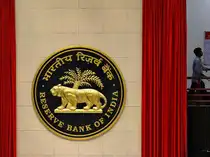Synopsis
The Reserve Bank of India is transitioning towards principles- and outcome-based regulations to offer operational flexibility to regulated entities. While this approach fosters innovation, the RBI acknowledges the importance of rule-based frameworks, particularly for consumer protection. The central bank is also exploring behavioural economics to enhance consumer outcomes and improve regulatory efficiency.
 Agencies
AgenciesMumbai: The central bank is gradually shifting toward principles- and outcome-based regulations aimed at providing operational flexibility to entities it regulates, said a senior official at the banking regulator.
This approach is aimed at moving away from rigid, rule-based frameworks, RBI deputy governor M Rajeshwar Rao said, speaking at Indian Institute of Management Kozhikode.
But he added that the rule-based framework is used by most developed economies to safeguard the interest of consumers. He also hinted that the RBI is exploring behavioural economics to improve consumer outcomes efficiently. Principles-based regulations rely on broad, intent-driven guidelines that offer flexibility for innovation. They enable regulated entities (RE) to develop new products without rigid constraints.
"However, it is open to subjective interpretation and can, therefore, pose challenges for both REs and supervisors, thus limiting enforcement and accountability," Rao said. Rules-based regulation enforces specific, prescriptive requirements, ensuring clarity and consistency for regulated entities and consumers.
"However, it can lead to superficial compliance. It may lead to a 'check-the-box' mentality, resulting in compliance by REs in letter but not in spirit," he added.
He said that outcome-based regulation is yet another approach that has gained prominence. It focuses on desired outcomes or results rather than prescribing specific processes. Here, the focus is on "what" is the desired outcome, while providing flexibility on "how" to achieve it, the DG said.
Summing up, Rao said that "principles- and outcome-based" regulation is generally found to be more suitable for mature markets. Nevertheless, even developed economies use the rule-based framework when it comes to safeguarding the interests of consumers."
The DG said the RBI is gradually shifting toward principles and outcome-based regulations, 'as it gives operational flexibility to the REs for conduct of their operations and tailor their activities to their unique needs, while adhering to the regulatory framework for delivering the outcomes expected from them.'
He said that the regulator should also factor in the impact of regulations on consumer-the most important stakeholders in the financial system.
He said behavioural economics equips regulators with tools like nudges to better understand consumer behaviour and improve outcomes efficiently, complementing traditional frameworks with lower compliance costs.
(What's moving Sensex and Nifty Track latest market news, stock tips, Budget 2025, Share Market on Budget 2025 and expert advice, on ETMarkets. Also, ETMarkets.com is now on Telegram. For fastest news alerts on financial markets, investment strategies and stocks alerts, subscribe to our Telegram feeds .)
Subscribe to ET Prime and read the Economic Times ePaper Online.and Sensex Today.
Top Trending Stocks: SBI Share Price, Axis Bank Share Price, HDFC Bank Share Price, Infosys Share Price, Wipro Share Price, NTPC Share Price
...moreless
(You can now subscribe to our ETMarkets WhatsApp channel)
(What's moving Sensex and Nifty Track latest market news, stock tips, Budget 2025, Share Market on Budget 2025 and expert advice, on ETMarkets. Also, ETMarkets.com is now on Telegram. For fastest news alerts on financial markets, investment strategies and stocks alerts, subscribe to our Telegram feeds .)
Subscribe to ET Prime and read the Economic Times ePaper Online.and Sensex Today.
Top Trending Stocks: SBI Share Price, Axis Bank Share Price, HDFC Bank Share Price, Infosys Share Price, Wipro Share Price, NTPC Share Price
...moreless
.png)
 German (DE)
German (DE)  English (US)
English (US)  Spanish (ES)
Spanish (ES)  French (FR)
French (FR)  Hindi (IN)
Hindi (IN)  Italian (IT)
Italian (IT)  Russian (RU)
Russian (RU) 







Comments